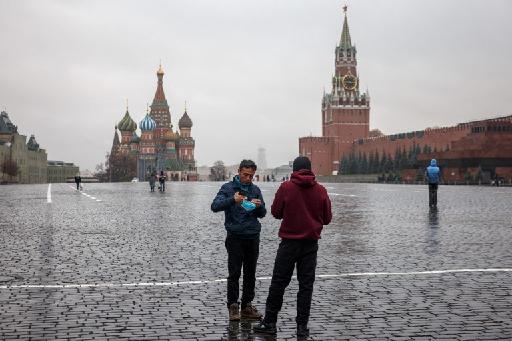Russians began taking one week off on Saturday in a measure aimed at curbing the spread of Covid-19 infections in the country, which has the worst death toll from the virus in Europe.
According to official statistics published on Saturday, new infections registered over the past 24 hours totalled 40, 251, the highest daily figure since the start of the pandemic. Last week, President Vladimir Putin declared a nationwide holiday from 30 October to 7 November to break COVID transmission channels.
In the capital, Moscow, scene of the worst outbreak of the virus by far, the stay-at-home period, which involves the closure of non-essential services, began on Thursday, 28 October.
Russia has broken successive records of infections and deaths due to Covid-19 in recent days as a jerky vaccination campaign and weak health restrictions fuelled pandemic spikes. After a strict lockdown in Spring 2020, the authorities refused to reimpose confinement despite surging infections, so as to limit economic losses.
The rapid spread of infections has also been facilitated by the low rate of vaccination in the country, largely due to widespread mistrust of local serums.
Russia has many locally designed vaccines, but just 32.5% of the some 144 million Russians are fully vaccinated, according to official statistics.
This week the Kremlin expressed concern at the booming travel and holiday planning by Russians during their one-week leave.
Thus far the country has registered 8,472,797 cases of the virus since the pandemic started, and 237,380 deaths.
According to the Rosstat statistical agency, which has a broader definition of Covid-related deaths, total fatalities from the pandemic in Russia were close to 450,000 by the end of September.
This unofficial death toll would make Russia the country with the fourth highest number of Covid-related fatalities, behind the United States, Brazil and India.

